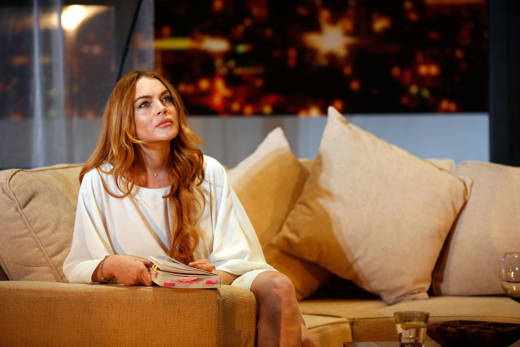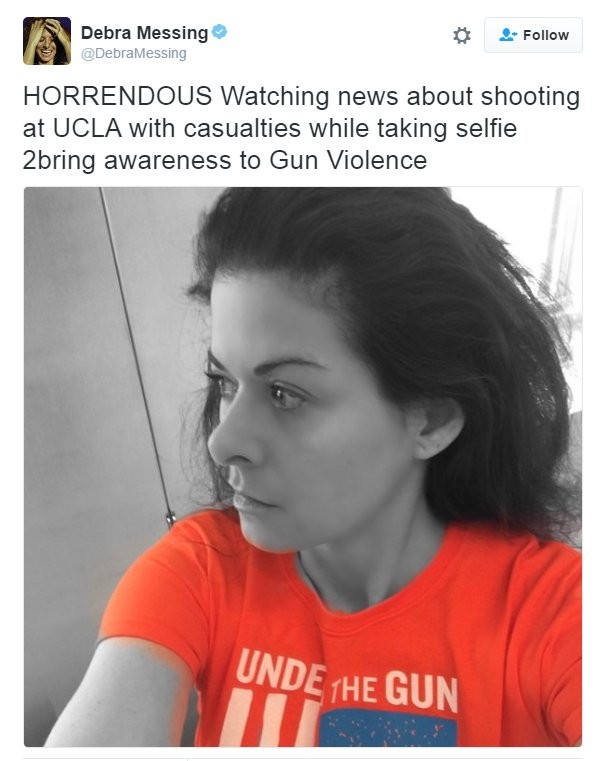When Lindsay Lohan live-streamed footage of herself harassing a homeless family under the guise of trying to rescue their children from "trafficking," it was greeted with universal confusion, a little horror and a mountain of tweets.
Lindsay Lohan, Jake Paul and Online Do-Gooding Gone Wrong

Some outlets quickly expressed concern about Lohan's mental health and her struggles with addiction. US Weekly reported that Lohan's "family and friends are worried" and that "her not living in the States makes her less accountable." But there is an element to the video that goes beyond her personal issues and stretches out into a wider online trend.
Earlier this year, YouTube star Logan Paul uploaded footage of himself and his friends standing next to a dead body hanging in Japan's infamous Aokigahara forest. Paul expressed shock on camera, but also made jokes, filmed the body up close and laughed with his friends.
After a wave of revulsion greeted the video, Paul stated, in an apology tweet: "I thought I could make a positive ripple on the Internet, not cause a monsoon of negativity." In a later video, Paul said: "I should have put the camera down [and] stopped recording what we were going through, but I didn't..."
Lohan and Paul have much in common. Both exercised cultural insensitivity, both tried to position themselves in a heroic role and both reveled in finding themselves in a dramatic situation of their own making. Most of all though, both believed they were doing something good.
When Lohan's first attempt at do-gooding (her offer of a hotel room) failed, she rushed to an entirely different angle (trying to "save" trafficked children). As Twitter users have noted, there is an air of white savior complex around the whole thing. Based on how quickly her attitude shifted towards the parents, Lohan's desire to make a difference in some way seems to have more to do with personal catharsis and reward than genuinely trying to help a family in need. Her filming of the entire incident (including the children's faces) certainly suggests as much.
Some of the most egregious social media faux pas have been committed when celebrities are trying to be helpful, but are too wrapped up in their own follower numbers to do it appropriately. "The whole world is seeing this right now," Lohan told the family in her Instagram video, referencing her 6.8 million followers. It's that sense of self-importance that sometimes prevents famous people from stopping and wondering whether the thing they're posting is genuinely helpful to anyone, or even in good taste.
In January 2016, Zac Efron posted a photo of himself posing in a convertible, next to the words: "I'm grateful for a couple things today: Martin Luther King Jr & 10 million followers on IG. #MLKDay". Efron later apologized, after it was pointed out that honoring the work, life and premature death of one of civil rights' most important figures should not, for obvious reasons, be equated with how many fans he had personally garnered.
In June 2016, Debra Messing was due to take part in an online "day of advocacy... to bring awareness to gun violence in America." At the moment she was taking some photos to post, she heard news about a shooting at UCLA and tweeted this:

After Twitter users pointed out the uselessness of posting a selfie while people were literally dying, Messing was forced to clarify. "I am heartbroken and embarrassed that many people misconstrued my actions and that I caused offense," she wrote. "The horrendous irony of the timing, I was hoping, would shine an even brighter light on the crisis and need for all of us to do something together to make the US safer. I am so truly sorry."
Then there was the time in 2014, when Courtney Love announced that she had solved the location of missing Malaysia Airlines Flight 370 from her seat aboard a different plane.
All of these incidents are the result of a weird—and relatively new—cultural intersection where a desire to use one's fame for good collides with an inflated sense of self-importance and a need for the reassurance of thousands of people praising you for your actions.
According to the American Marketing Association, “people get a rush of dopamine when they post, share or 'like' something online.” This in turn means that people “get a ‘high’ from positive interactions with one another on social media.” When you take that and blow it up to the kinds of numbers that celebrities deal with online, it's easy to see how they can miss the bigger picture.
Potentially exacerbating the problem is a cultural obsession with reality television—the idea that every moment of our lives deserves documenting. The fact that Lohan has recently been filming a reality TV show for MTV might have been the thing that prompted her to try and turn passive bystanders into a dramatic scene of some sort. Away from the cameras and her beach resort in Mykonos, it's possible that Lohan just missed a lens being pointed at her and tried to cultivate something similar.
Older generations have spent years leveling (mostly) unfair accusations of narcissism and self-obsession against both Millennials and Generation Z, thanks to modern social media habits. Accurate or not, it is true that social media has changed how we communicate almost entirely.
In a 2017 article, High Snobiety pointed out that "plenty of benign interaction occurs [online] without any sort of agenda, but there are masses upon masses of people who utilize it as a means of projecting an idealized version of themselves out into the world—an avatar of the person that they wish they were, rather than who they are in reality."
The piece went on to argue that this tendency had led to a world where "human tragedies [are] converted into content for Facebook and a promotional opportunity for the people using it." Even a single year ago, that idea seemed like an unreasonable assumption, but in the end, it predicted the behavior of celebrities like Lohan perfectly. As long as actions can't be separated from ego, and ego can't be separated from the internet, it's a trend that's sure to continue.

